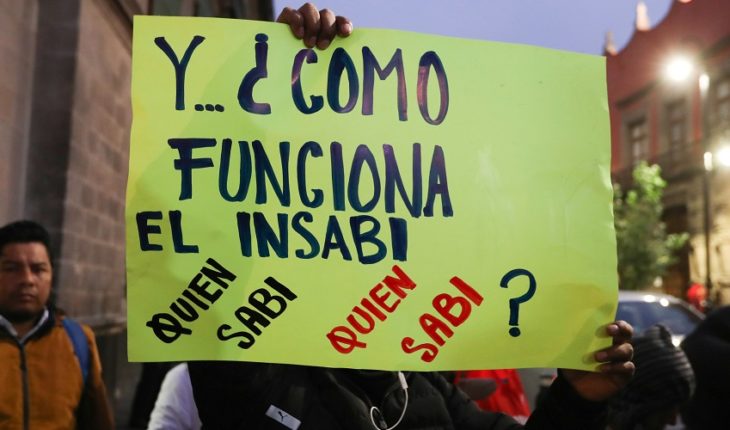The 19 states that are waiting to sign the agreements to adhere to the new health model to which the Institute of Health for Welfare (Insabi) belongs and that have until 31 January to decide whether or not to do so, will be responsible for guaranteeing without extra budget the free services to their population, said Hugo López Gatell, Undersecretary of Health Prevention and Promotion.
In a media meeting he explained that this is not a pressure measure, but that the additional 40 billion pesos that are held to start ensuring gratuitousness will be distributed among the states that sign the agreements and “that is by mere elementary administrative logic to be able to plan and give clear accounts,” he said.
You may be interested in Drug protections: the lifeline of patients without the resources to fight cancer
The official stated that states that do not adhere to the new model – which will guarantee free services to the uninsured population at the three levels of care from the first of December 2020 – will receive only the budget that comes with them by law and that comes from three ways.
Part of the Health Services Contribution fund (FASA), which is in Ramo 33, this has 110 billion pesos, the Union Congress establishes how much it is for each state and comes directly to them via the Ministry of Finance.
In addition, the entities have the money generated by state taxes, “although sometimes they turn a blind eye and do not use them for health, but they can use them in that,” the official said.
In addition, they have federal money through the Ministry of Health itself, Ramo 12, for example, for public health contributions that represent 20% of the cost of the programs. And the other volume of resources comes from the U05 program which is that of the old popular insurance.
That financial basis will continue to receive, but the extras, specifically the 40 billion pesos that were taken from the Catastrophic Popular Insurance Spending Fund to start the operation of the new health model, “cannot be transferred to them if they are not adhered to because they are not establishing the free commitment and are not adhering to the coordination plan on consolidated purchases, in remodeling of physical infrastructure, in payroll regularization,” said Lopez-Gatell.
Read more: AMLO promises Insabi for December and sees 87,000 workers by the end of the six-year term
So far, only 13 states have signed adherence to the new health model, however the undersecretary said they are confident that the majority will join and for that they have established a dialogue with all entities.
“We understand that there are states that do not want to join, such as Guanajuato that has a good state health system, because they think they will come and I will be governed by my units, but this can be talked about to see modalities, so the law establishes coordination in the work between entities and federation. We no longer bet on a single health system, as we put it at the beginning, because the critical path in the legal way was going to be longer and there is a lot of political resistance.”
Of the 19 states that have not signed the accession to the new health model, 13 are evaluating it, including Morelos, ruled by Morena, and six others have so far spoken out for the refusal, five of the PAN and one of the Citizen Movement.
Since last Wednesday, the health secretaries of the PAN-ruled states have met to develop a counter-proposal to adhere to the Health for Welfare model, which could be made known between Saturday and Monday.
What we do in Animal Político requires professional journalists, teamwork, dialogue with readers and something very important: independence. You can help us keep going. Be part of the team.
Subscribe to Animal Politician, receive benefits and support free journalism.#YoSoyAnimal
translated from Spanish: States that do not accept Insabi will not receive extra resources: Health
January 17, 2020 |





